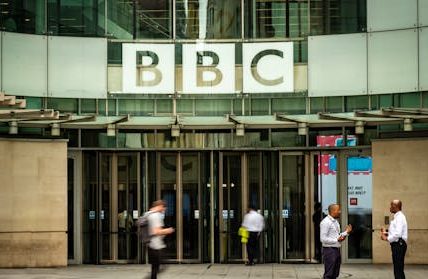The Weimar triangle: how Germany’s new government could reinvigorate an important European security alliance
Decisions made by German chancellor Friedrich Merz when he came to power in May indicate that a somewhat dormant regional partnership is about to take on new significance in Europe. Merz immediately travelled to Paris and Warsaw to meet Emmanuel Macron and Donald Tusk, suggesting the so-called Weimar triangle is a top priority for his government.
Following Merz’s visit to Poland, Polish prime minister Tusk declared “a new beginning, perhaps the most important in the history of the last dozen or so years, in Polish-German relations”.
If Tusk is right, the Weimar triangle – an alliance between France, Germany and Poland – will have a key role to play. The Weimar triangle was established in 1991 as a forum for the three countries to work together in the interest of European security. This involved integrating Poland into the EU, as well as providing another channel for Germany to pursue friendship and reconciliation with its neighbours.
The Franco-German “special relationship” was already established, along with their shared reputation as Europe’s “motor”. But Poland’s inclusion was crucial. As a large, influential country in Central Europe, it was well placed to become a pillar of European security and a partner in European expansion following the collapse of Communist regimes.
Get your news from actual experts, straight to your inbox. Sign up to our daily newsletter to receive all The Conversation UK’s latest coverage of news and research, from politics and business to the arts and sciences.
As well as being a smaller security forum in which Germany, France and Poland can find common ground on EU security and foreign policy, the Weimar triangle has at times taken on an active international role. During the 2014 Ukraine crisis, ministers from the three Weimar triangle countries took the lead and negotiated on behalf of the EU.
However, the importance and effectiveness of the format has declined in recent years due to deteriorating relations between the French, German and Polish governments.
Russia’s invasion of Ukraine in February 2022 elevated the significance of the Weimar triangle once again. But in the early days of the war, although all three governments condemned the invasion, Poland, Germany and France were far from being on the same page.
Germany’s cautious response provoked criticism in Poland – and indeed in other Central European countries. Many in the region had long been sceptical of Germany’s Russia policy and had warned of Russian aggression, but did not feel taken seriously.
While the Polish government was quick to commit significant military support to Ukraine, Germany, under former chancellor Olaf Scholz, soon gained a reputation for being overly cautious in the eyes of its more hawkish allies. This led the Polish government to begin turning to security alliances in Scandinavia and the Baltics.
Meanwhile, Scholz’s hesitancy and orientation towards Washington for leadership was also met with frustration in France, where the idea of “European sovereignty” in security issues had more traction.
When the new Merz government made it clear that it wanted to prioritise foreign policy and the Weimar triangle, there was a sense that things were about to change. It is still early days, but the rhetoric of all three Weimar triangle leaders signals a commitment to making the alliance finally deliver, as well as an awareness of earlier failures.
New challenges in Poland
It won’t be plain sailing from here though. The election of nationalist Karol Nawrocki as president in Poland in early June was a blow for those that support a new, strong Weimar triangle.
Poland’s current government is a centrist coalition led by pro-European prime minister Donald Tusk, but the concern now is that Nawrocki will block pro-European legislation as his predecessor did, given that he has the support of the nationalist, Eurosceptic Law and Justice (PiS) party. The PiS party (in government from 2015-2023) has a record of anti-German and anti-EU rhetoric.
Nawrocki has not yet questioned Poland’s military aid to Ukraine but the Tusk government must now continue to balance pursuing its own more liberal agenda and more pro-German and pro-European approach with the alternative views that Nawrocki represents, and which are clearly backed by a significant portion of Polish voters.
What next for the Weimar triangle?
Given the centrality of the Weimar triangle countries in Europe and the EU, their alliance has consequences that go far beyond the bilateral and regional levels. With the ongoing war in Ukraine and the uncertain status of the US as a security partner since Donald Trump’s re-election, a strong and unified pillar at the centre of Europe would be an asset to the EU and European security.
So far, the Weimar triangle has failed to deliver on the expectations attached to it, often due to domestic differences. However, it holds untapped potential. A divided Europe and EU is in the interest of Putin’s government, and is not the unified ally Ukraine needs.
The Weimar triangle, in bringing together three key member states – crucially including from Central Europe – can both symbolically and practically strengthen European foreign and security policy.
This will involve finding compromises to build a united front on security at the EU level, bringing issues and policies to the table, and strengthening understanding where security perspectives diverge. The positions and signals of France, Germany and Poland matter to other EU member states and to Ukraine. Joint efforts could have even more clout.
Rachel Herring receives funding from the Economic and Social Research Council.


